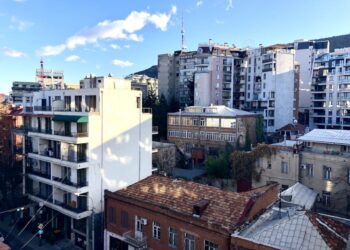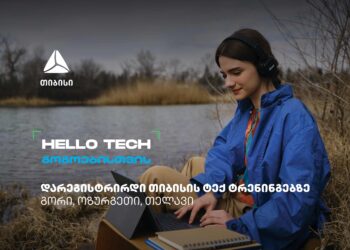One of the most salient features of post-soviet Georgia is the development of a multifaceted learning process. The inchoate era prompted the new republic to come to its senses as soon as possible, and learn, especially from the West, how to live and work better, gradually and methodically forgetting the erstwhile socialist ways and means that were prompted by the idea of communist industrial relations.
The most recognized supposition about the soviet collapse is that it was the absence of workforce productivity that eliminated the giant. Had it not succumbed to the failure of economic performance, many professionals argue, the USSR could still have been with us today. Keeping in mind that theory, it makes sense to believe that unless Sakartvelo provides for the relevant amount of output of useful products with the help of its own aggregate labor-force, it will be almost impossible for us to survive, not to mention maintain, the cherished factual national freedom and independence.
It is also true that in receiving nonstop economic assistance and financial donations from outside, in most cases from the United States and European Union, we might not need to overstrain ourselves in terms of generating our own money by means of producing the necessary goods and services, as long as we are more than happy with what we already possess. No doubt, for a developing country like ours, a reasonable amount of help is indispensable for a certain period of time, what with the post-socialist material difficulties being still present, but this might also have a negative power in creating free-riders, if not crystalized loafers, out of our people. Assistance is good and welcome every once in a while, but not perpetually.

Better would be the un-delayed improvement and further growth of our own workforce productivity. We can’t learn anything healthier and more valuable than this from the West, which has turned itself into an earthly paradise thanks to that great culture of labor productivity, in conjunction with ever-present lifelong learning and God-given intellectual capability. There is nothing sweeter than the fruits of one’s own productive labor. This is exactly what we have to copy from our American and European friends and well-wishers, and, most importantly, we have to teach it to our youth as soon and as readily as we can. The future of this country likely depends more on the increase of workforce productivity (driven by scientific advancement, capital investment and human resource development) than any other human endeavor which is conceivable in our modern times of accelerated race for survival.
Labor productivity is mathematically calculated and counted, like any other asset of human life, by dividing the entire output by the total quantity of hours worked. But calculation is one thing and a reasonable usage of the calculation result is another, meaning that the growth of labor productivity is directly proportional to the standards of living in the country, as a result of higher consumption that demands the production of more goods and services for the same volume of labor.
Taking a step back from these particular well-founded postulates, a consideration could be given to several ways of achieving a higher level of workforce productivity. In addition to investment in essential goods and infrastructure, as well as ventures in technological progress, such as wider computerization and robotics, it is critically important that we spend our national energy and capital profusely on the enhancement of quality of education and lifelong training, offering our young an opportunity to imbibe the modern educational good, upgrading the relevant skills so as to guarantee their future labor productivity. And for this, it is imperative that our youth know precisely where to spend time, what to be busy with, when and how much to work and relax, and how to prepare for future inevitable challenges in general. If I were as young as I wish to be, I would ask myself these questions every morning, when my vital senses spring to life all over again.
Blog by Nugzar B. Ruhadze














